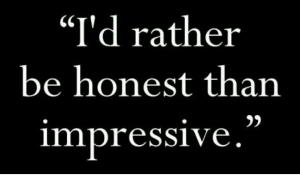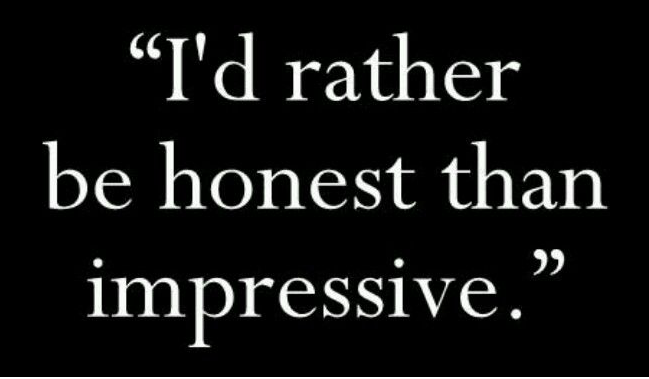Why Do I Get Into Trouble For Being Too Blunt?
Why Do I Get Into Trouble For Being Too Blunt?
 Over the years, I’ve periodically been accused by various family members, friends, employees, colleagues, and individuals who read my weekly articles that I am sometimes too blunt and harsh. I admit that this type of behavior is purposeful and intentional. One of the reasons that I behave in this way is because I initially learned it from the three men who had the most influence on me while I was growing up: my dad, Carl Williams, my grandfather, Tom Williams, and my uncle, Bill Williams.
Over the years, I’ve periodically been accused by various family members, friends, employees, colleagues, and individuals who read my weekly articles that I am sometimes too blunt and harsh. I admit that this type of behavior is purposeful and intentional. One of the reasons that I behave in this way is because I initially learned it from the three men who had the most influence on me while I was growing up: my dad, Carl Williams, my grandfather, Tom Williams, and my uncle, Bill Williams.
Whenever it was necessary, all three of those men had a tendency to be blunt and harsh, which meant that I always knew exactly where they stood and what they expected from me. It was on those occasions that they were the opposite of diplomatic.
The definition of “blunt” is “abrupt in speech or manner and uncompromisingly forthright.” One definition of the word “harsh” is “unpleasantly rough or jarring to the senses.” While my dad, my grandfather, and my uncle could be harsh, they were never unduly severe or excessively critical.
While I have been criticized for being blunt and harsh, if I thought it were necessary, I would modify the way I behave and communicate with others. But if I did that, I honestly do not believe that I would be behaving in a way that God expects me to behave.
I’ve known my wife Georgette for more than 41 years, and we’ve been married for more than 39 years. There are still occasions when I (unintentionally) embarrass her in public because of the way I treat other people. This usually happens when Georgette is with me and I challenge someone’s behavior. The way in which I challenge them is usually abrupt in speech or manner and uncompromisingly forthright. It is also sometimes unpleasantly rough or jarring to the senses.
A couple of weeks ago, I met with a client — I’ll call him Dylan — to review a settlement offer that had been made by an insurance company to settle his auto-accident injury case. Dylan is in his mid-thirties. He is smart and quick-witted. When we discussed the value of his case, Dylan tried to back me into a corner with his questions about the negotiation process and his assertion that the insurance company was not offering enough money.
After he questioned me and tried to convince me that I was not doing enough for him, I finally sat back and told him, “You know, we can sit here for another hour and you can ask me as many questions that you want to ask. I’ll be happy to answer all your questions, but regardless of what you say, there is nothing you can do that will change the value of your case.”
He became defensive and said, “Hey man, you jumped all over me and hollered at me while I was getting treatment for my injuries, so I have a right to challenge you on what you’re saying to me.” His statement caught me off guard. When I asked him what he was talking about, he said, “You yelled at me for not going to my physical therapy appointments!”
“Did I really yell at you?” I said. Then I looked at the case manager who had assisted me with his case and asked her, “Did I yell at him?” She smiled and shook her head no. I then looked at Dylan and said, “You know that I didn’t yell at you.” He shot back, “Yes you did. You jumped all over me for not going to my appointments.”
I smiled and calmly said, “I’ll bet you never thought you would get a lawyer who cared enough about you to push you to get the treatment that you needed for your body to heal. Is it okay with you if someone else cares enough about you that he pushes you to do the right thing? Do you even appreciate the fact that I cared enough about you to make sure you didn’t skip out on the treatment that you needed?”
Until then, each time he had opened his mouth, he had something deceptive or clever to say, but my blunt, uncompromisingly forthright honesty and concern for him left him speechless. He had nothing else to say at that point except, “Yeah, I appreciate what you did for me.”
He had apparently been humbled enough by my statement that he was no longer comfortable with trying to push me to do something that was not appropriate.
A few months ago, I met with one of my injury clients who I’ll refer to as “Julia.” After our meeting, Julia went home and called my Client Services Manager (Kenna) who had been present during our meeting. Julia told Kenna that she didn’t appreciate the way I had talked to her and was offended by the way that I had treated her.
What had happened was that during our meeting, Julia complained that because of her injuries, despite the fact that she was taking pain and anti-inflammatory medication, she was still having daily headaches and severe pain in her back. Her symptoms had not improved over the past two months, and she was very frustrated. I responded to her complaints by asking her what it was that kept her from doing what her doctor and physical therapist had told her to do. She was stunned by my question and wasn’t able to explain why she had trouble following the direction of her medical providers.
I then said, “The average woman in America lives past the age of 80. That means that there’s a good chance that you’re going to be forced to live in your body for at least another 50 years. If you don’t do everything possible to get better right now, when you’re 50 or 60, you’re going to regret that you didn’t do what you were told to do by your medical providers. You really need to work on taking care of yourself now, so you can get better and enjoy the quality of life that you deserve to have.”
Julia thought that I had been too harsh on her. To her, what I had said was unpleasantly rough and jarring to her senses.
Kenna told Julia that the way that I had talked to her was the same way that I talk to all my clients. She told Julia that I treat all my clients the way I would treat one of my own family members and because I care a lot about my clients, I sometimes tend to be blunt and forceful so there is no question in their minds as to what they should be doing to get themselves better.
Julia appreciated what Kenna said to her, but just to be safe, the next time I met with Julia, Kenna told me, “Be nice to her!”
There are several examples in the New Testament when the son of God was abrupt in speech or manner and uncompromisingly forthright. He was also sometimes unpleasantly rough and jarring to the senses.
Since we’re on the topic of bluntness and harshness, there’s an extremely harsh reality that you and I are going to face at the end of our lives. According to the teachings of the Catholic Church, there is only one of three “places” where our souls will end up immediately after we die: Heaven, Hell, or Purgatory.
There are many who deny that there’s a Hell because they cannot fathom an eternity of horrific suffering and torment at the hands of creatures (fallen angels) who hate them with a pure hate. It is unpleasantly rough and jarring to the senses for people to contemplate an eternity of suffering, unbearable pain, humiliation, crying, screaming, and gnashing of teeth.
In Hell, everything a person sees, hears, touches, smells, and tastes would be enough to kill you and me or render us insane if it happened to us on Earth. How’s that for being abrupt in speech and uncompromisingly forthright?
I’m grateful for what I learned from the example of my dad, my grandfather, and my uncle.





1 Comment
I think that you have a difficult job being a lawyer. Your firmness is needed in order to assist the client with things he or she is not trained to handle. I admire the way you handle each one! Blessings to you and your family. Love from Sister Roberta